Essential oil cleaning tips are about to revolutionize your cleaning routine! Are you tired of harsh chemicals and overpowering artificial scents? Do you dream of a sparkling clean home that smells naturally amazing? I know I do! Well, get ready to ditch those store-bought cleaners and embrace the power of nature with these simple and effective DIY cleaning solutions.
The use of essential oils isn’t exactly new. In fact, ancient civilizations, from the Egyptians to the Romans, utilized fragrant plant extracts for everything from medicinal purposes to perfumery and, yes, even cleaning! They understood the inherent antibacterial and antiviral properties of these natural wonders, long before we had fancy scientific terms for them.
But why should you care about essential oil cleaning tips today? Because in our modern world, we’re constantly bombarded with synthetic chemicals that can be harmful to our health and the environment. These DIY cleaning hacks offer a safe, sustainable, and incredibly fragrant alternative. Plus, they’re often cheaper than those pricey commercial cleaners! I’m going to show you how to harness the power of essential oils to create everything from all-purpose sprays to disinfecting wipes, leaving your home clean, fresh, and toxin-free. Get ready to unlock the secrets to a healthier and happier home, one essential oil at a time!
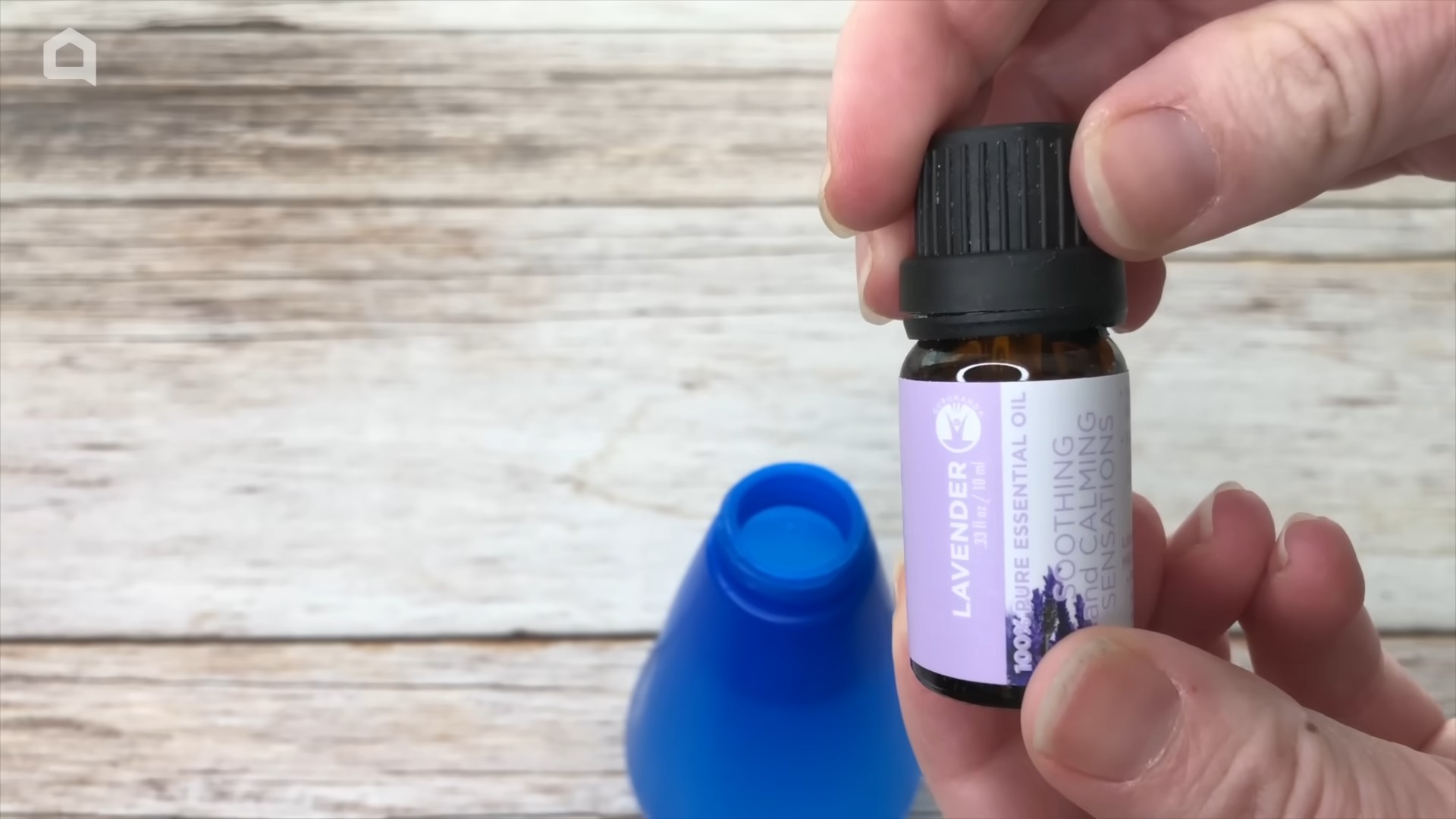
DIY Essential Oil Cleaning Power: A Natural Home Makeover
Hey there, fellow DIY enthusiasts! I’m so excited to share my favorite way to ditch harsh chemicals and embrace the power of essential oils for a sparkling clean home. Not only is it better for your health and the environment, but it also smells amazing! I’ve been using these methods for years, and I can honestly say my house has never felt cleaner or fresher. Let’s dive in!
General Guidelines for Using Essential Oils in Cleaning
Before we get into specific recipes, let’s cover some essential ground rules. These tips will help you get the most out of your essential oil cleaning adventure:
* Quality Matters: Invest in high-quality, pure essential oils. Look for oils that are labeled as “100% pure” and ideally come from a reputable source. Cheaper oils might contain fillers or synthetic fragrances, which won’t give you the same cleaning or aromatherapy benefits.
* Storage is Key: Store your essential oils in dark glass bottles in a cool, dark place. This will help preserve their potency and prevent them from degrading.
* Dilution is Crucial: Essential oils are highly concentrated, so always dilute them properly before use. Never apply undiluted essential oils directly to surfaces, especially delicate ones.
* Patch Test First: Before using a new essential oil blend on a large surface, test it on a small, inconspicuous area to ensure it doesn’t cause any discoloration or damage.
* Safety First: Keep essential oils out of reach of children and pets. Some essential oils are toxic if ingested. If you’re pregnant or have any underlying health conditions, consult with a healthcare professional before using essential oils.
* Citrus Oil Caution: Be mindful when using citrus essential oils (like lemon, orange, and grapefruit) on surfaces that are exposed to sunlight. Citrus oils can sometimes cause photosensitivity, which can lead to discoloration.
My Go-To Essential Oils for Cleaning
These are my absolute favorite essential oils for cleaning, and I always have them on hand:
* Lemon: A powerhouse for cutting through grease, removing sticky residue, and disinfecting. Its bright, uplifting scent is an added bonus!
* Tea Tree (Melaleuca): Known for its potent antibacterial, antiviral, and antifungal properties. It’s perfect for cleaning bathrooms, kitchens, and anywhere that needs a little extra germ-fighting power.
* Lavender: Not just for relaxation! Lavender has antiseptic and antifungal properties and leaves a calming, fresh scent. I love using it in my laundry and for general cleaning.
* Eucalyptus: A strong disinfectant with a refreshing, invigorating scent. It’s great for cleaning floors, bathrooms, and tackling tough stains.
* Peppermint: A natural insect repellent and deodorizer. It’s also effective for cleaning surfaces and leaving a fresh, minty scent.
* Orange: Similar to lemon, orange essential oil is great for degreasing and has a cheerful, uplifting aroma.
All-Purpose Essential Oil Cleaner
This is my everyday cleaner that I use on almost every surface in my home. It’s simple, effective, and smells fantastic!
What You’ll Need:
* 16 oz Spray Bottle
* 1 cup White Vinegar
* 1 cup Water
* 15-20 drops Lemon Essential Oil
* 5-10 drops Tea Tree Essential Oil (optional, for extra disinfecting power)
Instructions:
1. Combine Ingredients: In your spray bottle, combine the white vinegar and water.
2. Add Essential Oils: Add the lemon and tea tree essential oils to the mixture.
3. Shake Well: Secure the spray nozzle and shake the bottle well to combine all the ingredients.
4. Spray and Wipe: Spray the cleaner onto the surface you want to clean and wipe with a clean cloth or sponge.
Essential Oil Glass Cleaner
Say goodbye to streaks and hello to sparkling clean windows and mirrors! This glass cleaner is super easy to make and works like a charm.
What You’ll Need:
* 16 oz Spray Bottle
* 1/4 cup White Vinegar
* 1 3/4 cups Water
* 5-10 drops Lemon Essential Oil
Instructions:
1. Combine Ingredients: In your spray bottle, combine the white vinegar and water.
2. Add Essential Oil: Add the lemon essential oil to the mixture.
3. Shake Well: Secure the spray nozzle and shake the bottle well to combine all the ingredients.
4. Spray and Wipe: Spray the cleaner onto the glass surface and wipe with a clean microfiber cloth. For best results, use a dry microfiber cloth to buff the glass after wiping.
Essential Oil Toilet Bowl Cleaner
Keep your toilet bowl clean and fresh with this natural toilet bowl cleaner. It’s a great alternative to harsh chemical cleaners.
What You’ll Need:
* 1/2 cup Baking Soda
* 1/2 cup White Vinegar
* 10-15 drops Tea Tree Essential Oil
* 5-10 drops Lemon Essential Oil
Instructions:
1. Sprinkle Baking Soda: Sprinkle the baking soda into the toilet bowl.
2. Add Essential Oils: Add the tea tree and lemon essential oils to the baking soda.
3. Pour in Vinegar: Slowly pour the white vinegar into the toilet bowl. It will fizz!
4. Let it Sit: Let the mixture sit for about 10-15 minutes.
5. Scrub and Flush: Scrub the toilet bowl with a toilet brush and then flush.
Essential Oil Floor Cleaner
Keep your floors clean and smelling fresh with this simple floor cleaner. It’s safe for most types of flooring, but always test it on a small, inconspicuous area first.
What You’ll Need:
* Bucket
* 1 gallon Hot Water
* 1/4 cup White Vinegar
* 10-15 drops Lemon Essential Oil
* 5-10 drops Eucalyptus Essential Oil
Instructions:
1. Combine Ingredients: In the bucket, combine the hot water, white vinegar, lemon essential oil, and eucalyptus essential oil.
2. Mop the Floor: Dip your mop into the bucket and wring out the excess water. Mop your floors as usual.
3. Let it Dry: Allow the floors to air dry.
Essential Oil Laundry Booster
Add a boost of freshness and cleaning power to your laundry with this simple laundry booster.
What You’ll Need:
* 1 cup Washing Soda
* 1/2 cup Borax
* 20-30 drops Lavender Essential Oil
* 10-15 drops Lemon Essential Oil
Instructions:
1. Combine Ingredients: In a large bowl, combine the washing soda and borax.
2. Add Essential Oils: Add the lavender and lemon essential oils to the mixture.
3. Mix Well: Mix all the ingredients together thoroughly.
4. Store: Store the laundry booster in an airtight container.
5. Use: Add 1-2 tablespoons of the laundry booster to your washing machine along with your regular laundry detergent.
Essential Oil Furniture Polish
Revive your wooden furniture with this natural furniture polish. It will leave your furniture looking shiny and new.
What You’ll Need:
* 1/4 cup Olive Oil
* 1 tablespoon White Vinegar
* 10-15 drops Orange Essential Oil
Instructions:
1. Combine Ingredients: In a small bowl, combine the olive oil, white vinegar, and orange essential oil.
2. Mix Well: Mix all the ingredients together thoroughly.
3. Apply to Furniture: Dip a clean cloth into the mixture and apply it to your wooden furniture.
4. Buff: Use a clean, dry cloth to buff the furniture until it shines.
Essential Oil Disinfecting Spray
For those times when you need a little extra disinfecting power, this spray is your go-to. It’s perfect for countertops, doorknobs, and other high-touch surfaces.
What You’ll Need:
* 16 oz Spray Bottle
* 1/4 cup Witch Hazel
* 1 3/4 cups Water
* 15-20 drops Tea Tree Essential Oil
* 10-15 drops Lemon Essential Oil
Instructions:
1. Combine Ingredients: In your spray bottle, combine the witch hazel and water.
2. Add Essential Oils: Add the tea tree and lemon essential oils to the mixture.
3. Shake Well: Secure the spray nozzle and shake the bottle well to combine all the ingredients.
4. Spray and Let Sit: Spray the cleaner onto the surface you want to disinfect and let it sit for a few minutes.
5. Wipe Clean: Wipe the
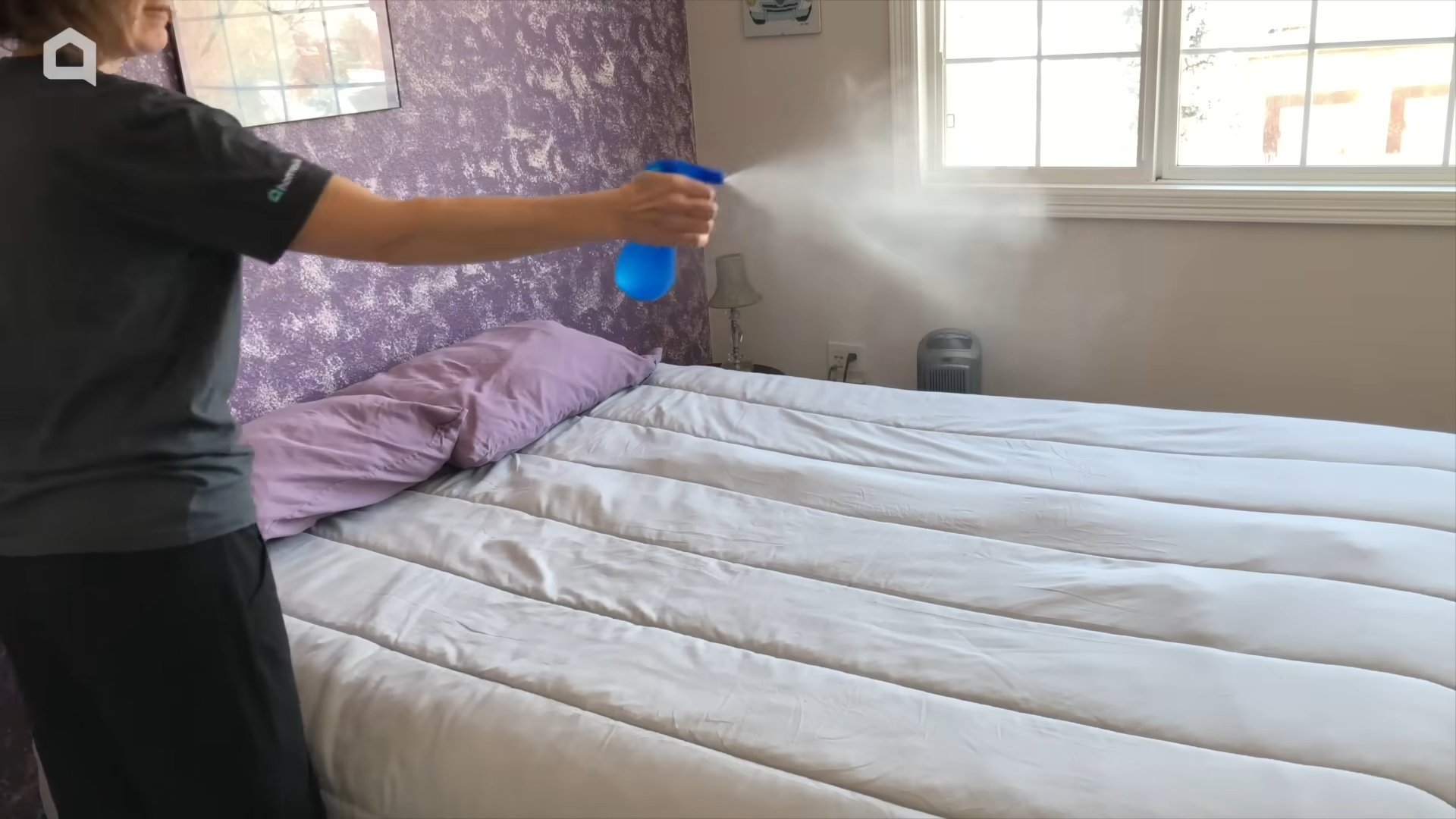
Conclusion
So, there you have it! Ditching harsh chemicals and embracing the power of nature with these essential oil cleaning tips is not just a trend; it’s a smarter, healthier, and frankly, more enjoyable way to keep your home sparkling. We’ve walked you through the basics, from creating all-purpose sprays that tackle grime with the invigorating scent of lemon, to crafting gentle furniture polishes that nourish wood while leaving behind the calming aroma of cedarwood.
But why is this DIY approach a must-try? Beyond the obvious benefits of avoiding potentially harmful chemicals, you gain complete control over the ingredients you’re bringing into your home. You know exactly what’s in your cleaning solutions, which is especially important for families with young children, pets, or those with sensitivities. Plus, let’s be honest, the customizable scents are a game-changer. Tired of that artificial “clean” smell? Infuse your home with the uplifting fragrance of grapefruit, the grounding scent of frankincense, or the refreshing coolness of peppermint. The possibilities are truly endless.
This isn’t just about cleaning; it’s about creating a healthier and more pleasant living environment.
Ready to take your essential oil cleaning to the next level? Consider these variations:
* **For stubborn stains:** Add a tablespoon of washing soda to your all-purpose cleaner for extra cleaning power.
* **For disinfecting:** Incorporate tea tree oil or thyme oil into your spray for their potent antibacterial and antiviral properties. Remember to always dilute essential oils properly.
* **For a calming bathroom cleaner:** Combine lavender and eucalyptus essential oils for a spa-like experience while you clean.
* **For a pet-friendly cleaner:** Use a diluted solution of citrus essential oils (like orange or lemon) but always ensure proper ventilation and observe your pet for any adverse reactions. Some essential oils are toxic to pets, so research thoroughly before using.
We’ve armed you with the knowledge and inspiration to transform your cleaning routine. Now, it’s your turn to experiment, discover your favorite essential oil blends, and experience the joy of a naturally clean home.
Don’t be afraid to get creative! Mix and match essential oils to create your signature scents. Start small, test your solutions in an inconspicuous area first, and always prioritize safety.
We’re confident that once you experience the difference, you’ll never go back to conventional cleaners. So, grab your essential oils, gather your supplies, and get ready to revolutionize your cleaning routine.
We’re eager to hear about your experiences! Share your favorite essential oil cleaning recipes, tips, and tricks in the comments below. Let’s build a community of natural cleaning enthusiasts and inspire others to embrace a healthier, more sustainable way of life. What are your go-to essential oil combinations for a sparkling clean home? Let us know!
FAQ
What exactly are essential oils, and are they safe to use for cleaning?
Essential oils are concentrated plant extracts obtained through various methods like distillation or cold pressing. They contain the natural aroma and therapeutic properties of the plant. When used correctly and diluted properly, most essential oils are generally safe for cleaning. However, it’s crucial to research each oil before using it, especially if you have allergies, sensitivities, or pets. Some essential oils are toxic to animals, so always double-check. Always perform a patch test on a small, inconspicuous area before applying any essential oil cleaning solution to a larger surface.
How do I properly dilute essential oils for cleaning?
Dilution is key to both safety and effectiveness. A general guideline is to use 10-15 drops of essential oil per ounce of carrier liquid (water, vinegar, alcohol, etc.). For example, in a 16-ounce spray bottle, you would use approximately 160-240 drops of essential oil. Always start with a lower concentration and increase as needed. Remember that some essential oils are more potent than others, so adjust accordingly. Use glass or PET plastic spray bottles, as some essential oils can degrade other types of plastic.
Which essential oils are best for cleaning?
Several essential oils are known for their cleaning properties. Some popular choices include:
* **Lemon:** A powerful degreaser and disinfectant with a bright, uplifting scent.
* **Tea Tree:** A potent antibacterial, antiviral, and antifungal oil, ideal for disinfecting.
* **Lavender:** Known for its calming aroma and antibacterial properties, great for general cleaning.
* **Eucalyptus:** A strong disinfectant with a refreshing scent, effective against mold and mildew.
* **Peppermint:** A natural insect repellent with a cooling and invigorating aroma.
* **Orange:** A degreaser and disinfectant with a cheerful, citrusy scent.
* **Pine:** A natural disinfectant with a fresh, woodsy scent.
Experiment with different combinations to find your favorite blends.
Can I use essential oils to clean all surfaces in my home?
While essential oils are versatile, they’re not suitable for all surfaces. Avoid using them on delicate materials like marble, granite, or waxed wood, as they can potentially damage the finish. Always test your cleaning solution on a small, inconspicuous area first to ensure it doesn’t cause any discoloration or damage. For porous surfaces, like unsealed grout, be mindful of potential staining and use a less concentrated solution.
Are essential oil cleaners safe for pets and children?
Some essential oils are toxic to pets, especially cats and dogs. Common culprits include tea tree oil, pennyroyal, wintergreen, and cinnamon. Always research the safety of each oil before using it around pets. If you have pets, opt for pet-friendly essential oils like lavender, chamomile, or cedarwood, and always ensure proper ventilation. When cleaning with essential oils around children, use diluted solutions and avoid spraying directly onto surfaces they might touch or ingest. Store essential oils out of reach of children.
How do I store essential oil cleaning solutions?
Store your essential oil cleaning solutions in dark glass or PET plastic bottles in a cool, dark place. This helps to protect the essential oils from light and heat, which can degrade their quality. Label each bottle clearly with the ingredients and date of preparation. Properly stored essential oil cleaning solutions can last for several months.
What are some common mistakes to avoid when using essential oils for cleaning?
* **Using undiluted essential oils:** Always dilute essential oils before use to avoid skin irritation or damage to surfaces.
* **Using the wrong type of plastic:** Some essential oils can degrade certain types of plastic, so use glass or PET plastic bottles.
* **Not testing on a small area first:** Always test your cleaning solution on a small, inconspicuous area before applying it to a larger surface.
* **Using essential oils that are toxic to pets:** Research the safety of each oil before using it around pets.
* **Overusing essential oils:** More isn’t always better. Use the recommended dilution ratios to avoid overpowering scents or potential irritation.
* **Mixing essential oils with harsh chemicals:** Avoid combining essential oils with bleach or other harsh chemicals, as this can create dangerous fumes.
Where can I buy high-quality essential oils for cleaning?
Purchase essential oils from reputable suppliers that offer pure, therapeutic-grade oils. Look for companies that provide GC/MS (Gas Chromatography/Mass Spectrometry) reports, which verify the purity and composition of the oils. Read reviews and do your research to ensure you’re buying from a trusted source. Some reputable brands include Plant Therapy, Eden’s Garden, and Rocky Mountain Oils.
Can I use essential oils to make my own laundry detergent?
Yes, you can add essential oils to your homemade laundry detergent for a natural fragrance boost and added cleaning power. Lavender, lemon, and tea tree oil are popular choices. Add a few drops of your chosen essential oil to your laundry detergent recipe or directly to the washing machine drum. Be mindful of potential staining on light-colored fabrics and test on a small area first.
How do I dispose of essential oil cleaning solutions properly?
Do not pour essential oil cleaning solutions down the drain, as they can harm aquatic life. Instead, dilute the solution with plenty of water and dispose of it in your yard or garden, away from waterways. Alternatively, you can contact your local waste management facility for guidance on proper disposal methods.
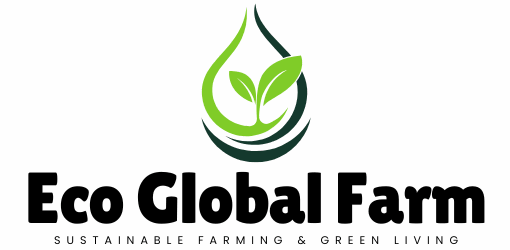
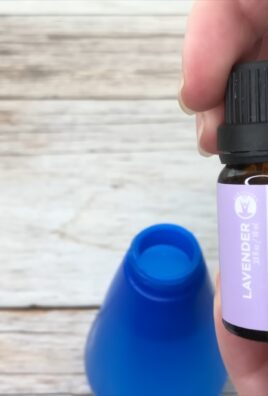
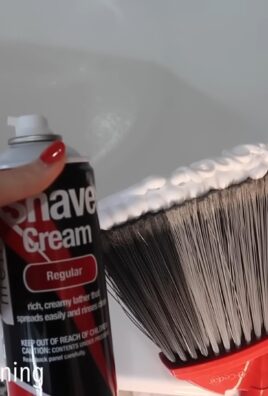
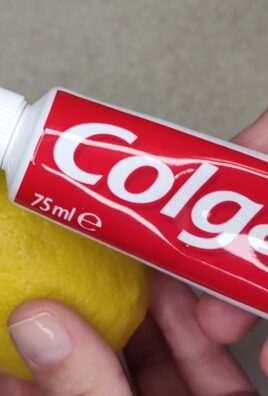
Leave a Comment